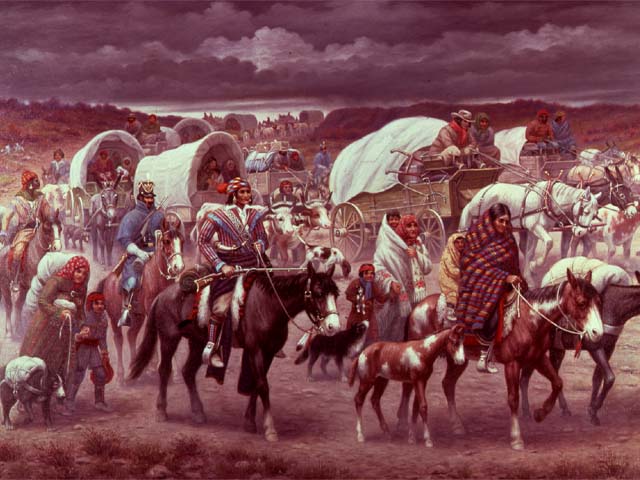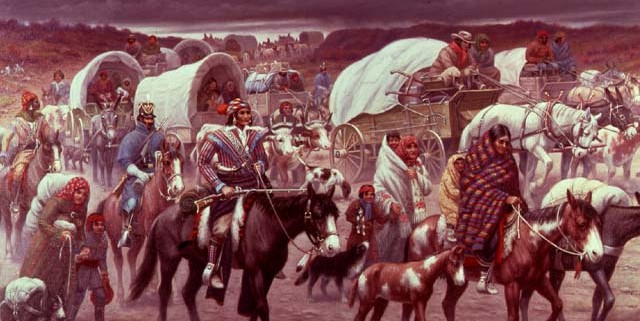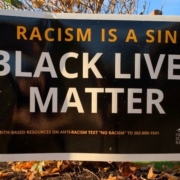Day 22: Questioning a Theology of Possession

White America’s interpretation of today’s reading has rendered it a text of terror with destruction in its wake.
The idea “that you may live, and may enter in and take possession of the land which the LORD, the God of your fathers, is giving you” (Deut. 4:1), provided scriptural warrant for Christians to claim the land that would become the United States. This presumably God-given blessing provided powerful symbolic justification for conquest, echoing throughout Christian reasoning to dispossess First Nations peoples and build America as a white Christian nation.

“The Trail of Tears,” painted by Robert Lindneux in 1942, depicted the Cherokee nation’s forced removal from its lands east of the Mississippi River by President Andrew Jackson’s administration between 1838 and 1839. Over 4,000 out of 15,000 of Cherokees died on the forced march.
The claim of Christian supremacy over First Nations peoples was written into U.S. law in 1823, when a distinction was made between the natives’ mere “right to occupancy” (as “heathens”) and the “right to title” for any Christian people who had made a discovery of the land. Over several hundred years, the Christian imagination established “a great nation” through dispossession, forced resettlements, and the exclusion of non-white peoples from land ownership, homeownership, and citizenship. The “doctrine of discovery” continues to be employed in legal arguments that impact First Nations peoples today.
The symbolic capital of a story of divine right to the land fed into generations of transferring the blessings of the earth to white Christians. These generations of wealth transfer created the conditions for racialized disparities in our world: where whites enjoy disproportionately high rates of home and land ownership in comparison with black, Latino, and Native American counterparts; and where such ownership grants access to higher levels of education, recreation, wealth, and social capital.
Supremacist scriptural readings and their material impact in our world are causes for the repentance that is hallmark of Lent. But this repentance must include repudiation of the doctrine of discovery that gave European Christians title to the land, and it must include reparation for white Christian sin.
Reflection Questions:
- On whose land am I living? How might I put my repentance into action in solidarity with First Nations peoples in the call for a repeal of the doctrine of discovery? How has my “great nation” and “possession of the land” involved the dispossession of others?
- Does my theological imagination include God’s favor on Christians and the Christian supremacy over non-Christian peoples? Does my theological imagination harbor a sense of God’s favor on white Christians as reflected in prosperity and success?
Jeannine Hill Fletcher is Professor of Theology at Fordham University, Bronx, NY. Her upcoming book The Sin of White Supremacy: Christianity, Racism and Religious Diversity will be published by Orbis (fall 2017).










This reading really struck me today. I am currently studying a Race Relations class at the University of Washington and we are talking about this very thing. It’s sad that so many poeple don’t realize how racialized this country was from the very beginning and still is today.